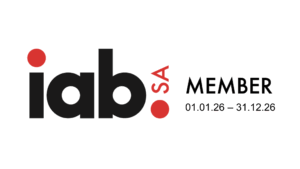Cape Town – The South African Revenue Service (SARS) has confirmed that social media influencers will be taxed and required to make full disclosure of their earnings.
The revenue authority issued a statement on 5 September to dispel rumours surrounding the taxation of influencers.
“SARS delivers this mandate through its strategic intent to develop and administer a tax and customs system based on voluntary compliance.
“Principally, SARS’s compliance theory is underpinned by an assumption that all taxpayers are honest and want to be assisted to comply with their obligations,” said SARS.
The organisation explained that it has expanded its segmentation model, with new categories now including National and Provincial Government, Social Influencers, and the Gig Economy.
“The segment of social influencers is composed of modern entrepreneurs, who can be classified as sole proprietors or independent contractors.
“These are technologically savvy individuals who have identified a niche in the market to provide a generalised offering that leverages their social following,” said SARS.
Media Release: SARS clarifies issues around social influencers
SARS has noted information circulating in public regarding taxation of social influencers. SARS wishes to clarify its position with respect to this category… https://t.co/cO8y6sZIhW pic.twitter.com/AMuqhy0YY2
— SA Revenue Service (@sarstax) September 5, 2025
According to the authority, each case will be assessed individually, with influencers taxed in line with existing income tax brackets.
“When managing this segment, SARS will handle each such situation on a case-by-case basis according to current income-tax brackets.
“Some of these cases may generally fall into the provisional-taxpayer category,” said SARS.
The revenue service acknowledged that marketing campaigns are increasingly shifting towards digital platforms, with brands contracting social personalities to promote their products and services.
To adapt to this shift, SARS has adjusted its educational and compliance initiatives, emphasising that tax brackets are determined by income as defined in Section 1 of the Income Tax Act, 58 of 1962 (ITA).
“Third-party data play a crucial role in determining where each taxpayer must be allocated in terms of income bracket. It must be reiterated that it remains the social influencers’ legal obligation to declare all income received,” said SARS.
The authority stressed that voluntary disclosure is critical, regardless of how influencers are paid. Products, services, or travel perks are all deemed taxable income under the ITA.
In an effort to help influencers understand their obligations, SARS said it has prepared material to assist them.
“SARS aims to do much more in terms of outreach and education. It will also provide seminars and webinars as well as rulings to educate taxpayers about their obligations,” said SARS.
SARS Commissioner Edward Kieswetter assured influencers that the agency is committed to supporting them in achieving compliance.
“SARS is looking forward to working with this segment to provide clarity and certainty, but also to provide them with a seamless taxpayer experience,” he said.
Follow African Insider on Facebook, X and Instagram
Picture: X/@sarstax
For more African news, visit Africaninsider.com
Compiled by Anda Tolibadi



